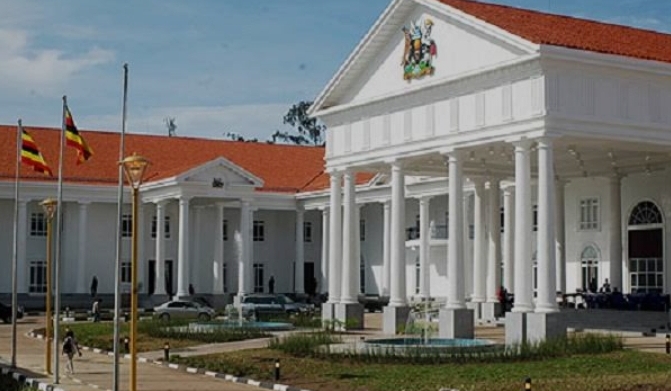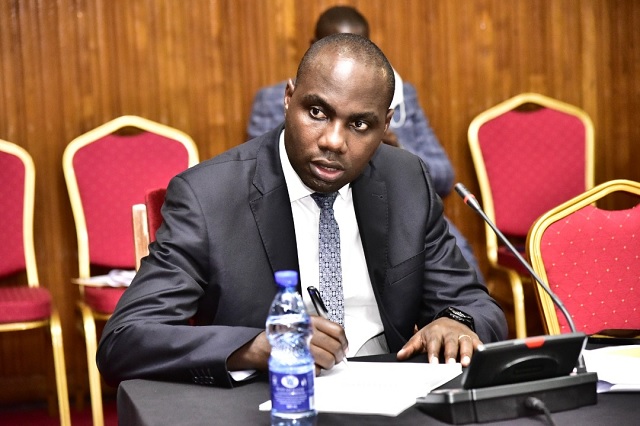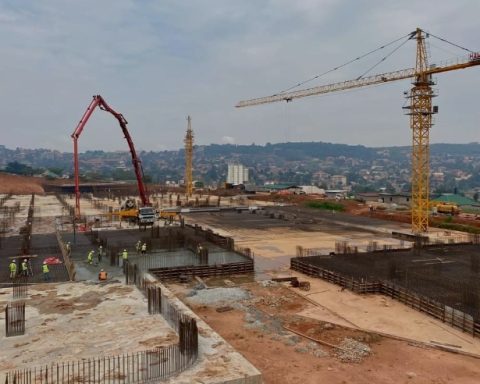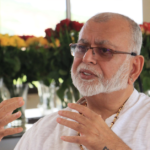Members of Parliament on the Budget Committee have raised concerns over State House’s request for UGX 93Bn, which includes UGX 83.03Bn for presidential donations and UGX 10Bn for purchasing new vehicles for President Museveni ahead of the 2026 elections.
The request was presented by Alex Byarugaba, Chairperson of the Presidential Affairs Committee, during a meeting with the Budget Committee to discuss the 2025/26 Budget Framework Paper. Byarugaba argued that delays in fulfilling presidential pledges were negatively affecting the President’s reputation.
“State House requires UGX 83.03Bn to clear outstanding presidential donations, but only UGX 53.03Bn is provided in the Medium-Term Expenditure Framework, leaving a shortfall of UGX 30Bn,” Byarugaba said. He emphasized the importance of closing this funding gap to ensure the fulfillment of commitments made by the President.

He also defended the UGX 10Bn request for new vehicles, stating that the current State House fleet is aging, leading to high maintenance costs. He noted that with the upcoming elections and ongoing government programs like the Parish Development Model (PDM), reliable transportation for the President was essential.
MPs Question Justification for Funding
Kira Municipality MP Ibrahim Ssemujju criticized the allocation, arguing that it was inappropriate to use public funds to purchase vehicles that could be used for campaign purposes.
“The justification for UGX 10Bn for new vehicles is that it’s an election season and for monitoring PDM. But the President is not an agricultural extension officer who should be inspecting farms,” Ssemujju argued. “Taxpayers should not be funding what appears to be campaign expenses for a political candidate.”
He further questioned why presidential pledges remained unfulfilled despite consistent allocations in previous budgets.
Kilak South MP Anthony Akol also called for greater transparency regarding how funds for presidential donations are spent. “We keep approving funds for these pledges every year, yet many remain unfulfilled. What criteria are used to determine which pledges are honored first? Parliament deserves a detailed breakdown of these allocations,” Akol stated.
Byarugaba, however, defended the allocations, citing constitutional provisions that mandate State House to facilitate the President in executing his duties. “The President remains Head of State, whether during campaigns or not, and his office must be adequately supported. Expecting him to travel in unreliable vehicles is unreasonable,” he said.
Government Seeks UGX 23Bn for RDCs
Meanwhile, the Presidential Affairs Committee has backed a request for UGX 23Bn to support Resident District Commissioners (RDCs), including UGX 6.2Bn for facilitation and UGX 2.8Bn for constructing offices.
Byarugaba noted that while UGX 21Bn is required to support RDCs, the indicative budget for 2025/26 only provides UGX 14.8Bn, leaving a shortfall of UGX 6.2Bn. He also highlighted that inadequate office space for RDCs remains a challenge, with only UGX 700M allocated annually for construction, which is insufficient to address the growing need.
“The Office of the President requires UGX 3.05Bn per year to construct at least five RDC offices, but at the current funding rate, it would take over a century to complete the required offices,” Byarugaba explained. He recommended increasing the annual allocation to UGX 2.8Bn to accelerate office construction.
However, Ssemujju questioned the ever-expanding number of RDCs, arguing that the government should consider reducing their numbers instead of continuously increasing budgetary allocations for their facilitation. “The number of RDCs has grown significantly over the years. Initially, there were only 39 districts, but now there are hundreds of RDCs, placing an unnecessary financial burden on the country,” he stated.
As Parliament continues to scrutinize the 2025/26 budget, the debate over government spending priorities remains a contentious issue. MPs are expected to push for greater accountability and efficiency in how public funds are allocated and utilized.
![]()




























